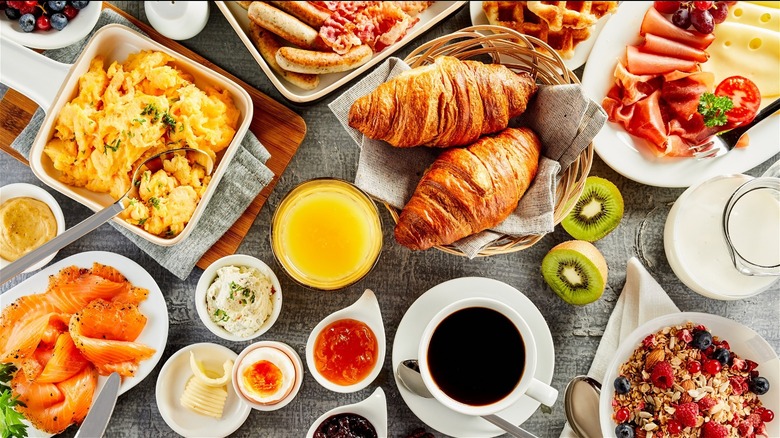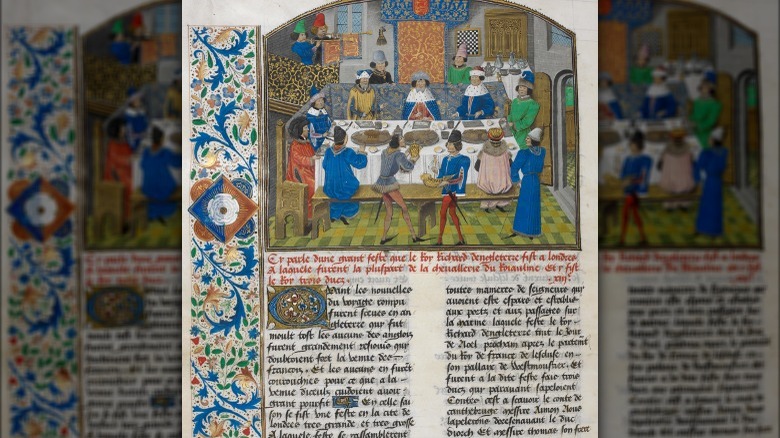The Unconventional Breakfast Foods That Powered The Medieval Era
We're all pretty partial to our breakfast, whether we like to enjoy a simple bowl of cereal or go all out and prepare bacon and eggs or whip up a pancake recipe. Not surprisingly, the concept of breakfast has been around for quite some time and was even enjoyed during the Medieval era.
Breakfast, or, as it was known during Medieval times, jantaculum, wasn't necessarily enjoyed by all people. There was a big divide between what would be eaten for breakfast by certain classes if breakfast was available at all. The wealthy and pilgrims generally indulged in breakfast, but not until after the morning mass.
When breakfast was available, the foods Medieval people ate also depended on their class status. Popular foods included fish, eggs, bread, bacon, cheese, and a porridge of oatmeal, all usually washed down with beer or wine. Sometimes fish would be served with unique sauces, such as dishes like "a dauce egre," fish covered in a sweet and sour sauce, and "haddoke in cyuee," fish in a sauce of ale, bread, onions, pepper, and saffron. Quite a different menu from our usual of eggs and sausage or waffles and maple syrup!
Lords and peasants ate different foods – but everyone had beer
Nobles and peasants would have different foods for breakfast. Noblemen, for example, would often enjoy meat and fish, as well as cooked (to keep away disease) fruits and vegetables. Their food was often heavily spiced, an indication of their wealth. Royal courts at the time often had spiceries full of caraway, nutmeg, cardamom, and ginger. Fish like trout and salmon were only enjoyed by Lords, who often kept ponds filled with fish that peasants did not have access to. The wealthy most often ate breakfast around six or seven in the morning, a meal that was usually relaxed and certainly not rushed.
On the other hand, poorer peasants would often turn to foods that had been preserved through salting or pickling and dairy products gleaned from their cows. Peasants usually ate their breakfast around the time the sun came up. Two dishes the classes had in common, however, were bread -– although the rich ate white bread while the poor ate rye bread -– and pottage, a soup made with vegetables, bran, and meats. Leek pottage was especially popular.
You may think it unconventional that people would indulge in wine and ale with their breakfast during Medieval times, but the reason they turned to alcoholic beverages at breakfast makes sense. Water, often sourced from nearby rivers, was often dirty and contaminated, and drinking it would lead to illness.

